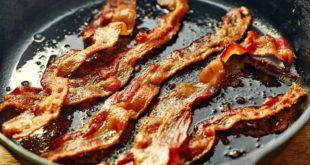
Iron deficiency is more than just a small dietary problem that leaves you feeling a bit tired – experts describe it as the most debilitating nutritional deficiency today. With more than two billion sufferers globally, this condition has even prompted the World Health Organization to form a plan of action.
Professor Al Khalafallah, a haematologist at Launceston General Hospital in Tasmania, is dedicated to getting the message out there that iron deficiency (ID), and particularly iron deficiency anaemia (IDA), isn’t just an issue in the developing world. In fact, he says, it’s impacting the health of 25 per cent of women and 16 per cent of men in Australia.
“[It] affects more women than any other condition, constituting an epidemic public health crisis,” he adds. “Such a problem, if ignored and not addressed properly, can have a devastating effect on entire populations with serious consequences.”
As well as the common symptom of fatigue, low iron can lead to decreased productivity, increased risk of depression, and lower immunity and poorer outcomes for mother and baby in pregnancy, Khalafallah says. It’s also been linked to heart failure.
“I wouldn’t be exaggerating to say that ID and IDA are the most serious chronic conditions affecting people [worldwide],” he says.
“It’s costing Australia millions of dollars a year in lost productivity, poorer educational performance and slower recovery after surgery leading to prolonged hospital stays.”
What is iron deficiency?
Our body needs iron to make haemoglobin, the oxygen-carrying protein in our blood, which transports oxygen from our lungs to every cell in our body so they can produce energy. The dietary mineral is so essential to the body’s function it knows not to ditch any excess and instead stores it in the liver. Levels can become low due to chronic blood loss (through menstruation or other causes), inadequate dietary intake, an inability to absorb or use it, or even excessive exercise.
If left untreated, iron deficiency can lead to anaemia, which causes the body to make small red blood cells that don’t contain enough haemoglobin, and therefore can’t carry enough oxygen to the organs and tissues. Signs of IDA include fatigue, tiredness and decreased immunity, but there are often no symptoms.
Tests and treatment
A simple and inexpensive blood test can diagnose iron levels, and Khalafallah says that if he had his way, it would be a routine part of primary healthcare. He says it’s vital that you speak to your GP about an annual blood test to keep an eye on your iron levels.
Pregnant women, he adds, should all have their blood screened because of the strong links between ID in mums-to-be and birth complications and delayed development among newborns.
Oral supplements, often in the form of tablets, are an effective first-line treatment for ID, however, Khalafallah says these are often associated with symptoms such as constipation, diarrhoea and nausea, which leads people to discontinue the treatment.
He advises anyone diagnosed with IDA to speak to their GP about intravenous iron infusions, which he believes should also be a standard treatment for IDA in pregnancy.
“IV iron has come a long way and has none of the gastrointestinal side effects that the tablets have,” he says. “Patients will find an almost immediate increase in their quality of life and general wellbeing when their [iron] levels return to healthy.”
The food factor
Boosting your intake of iron-rich foods is essential in ID caused by inadequate diet. The best sources of well-absorbed iron are beef and lamb, according to the Meat & Livestock Association, which says “130g of cooked beef or lamb every second day is recommended in the Australian Dietary Guidelines”.
Iron-rich plant foods include whole grains, legumes, nuts and green leafy veg. Combining a vitamin C-rich source, such as orange juice, with a plant-based meal will boost iron absorption. Avoid having caffeine with your meal as it inhibits iron absorption.
Source: bodyandSoul
 We are sharing information for knowledge. Presented by. SocialDiary.Net
We are sharing information for knowledge. Presented by. SocialDiary.Net



